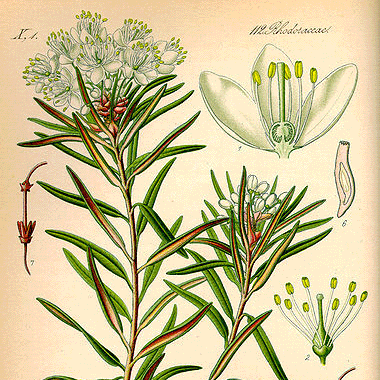developed by: Stephen Tobin, DVM
 Excerpted with permission from an article written by Stephen Tobin, DVM:
Excerpted with permission from an article written by Stephen Tobin, DVM:
“I am a holistic veterinarian in Connecticut and have treated several hundred cases of Lyme disease in the past five years. After trying various homeopathic preparations, with only limited success, I found that Ledum in a 1M potency is about as close as you can get in a specific cure. I have used it in dogs, cats, and horses, and it does not seem to matter whether it is a recent infection, a year old, treated or untreated—they all respond curatively. I have not had a single case that did not improve.
While I do not treat human beings, some of my clients with animals suffering from Lyme disease have taken Ledum 1M for their own Lyme disease infections, after seeing the positive result with their animals. The feedback I have gotten is all positive. I have told numerous naturopaths and homeopathic MDs about Ledum. One homeopathic MD runs titers on all his Lyme disease patients, both before and after treatment with Ledum, and has found that there is a constant decline in titer after Ledum.
For treatment, I give one pellet of Ledum 1M three times a day for three days. I have been using Borrellia burgdorferi 60X nosode, a homeopathic preparation, as a preventative for Lyme disease in dogs. I give orally one dose daily for one week, then one dose a week for one month, then one dose every six months. In the past four years, i have had only two dogs out of over five hundred on this regimen that might have contracted Lyme disease, both of which readily cleared with Ledum…”
According to Tobin’s office, the dose for humans is 1M Ledum, 1 pellet 3x day for 3 days, on an empty stomach. Please consult with a qualified homeopathist or physician who is aware of your health history before proceeding with any treatment protocol.
source: Stephen Tobin, DVM








Wild Rosemary ( Ledum palustre homeopathic remedy) is used as a decorative plant in gardens and has many culinary and medical uses and also MOSQUITO REPELLENT PLANTS